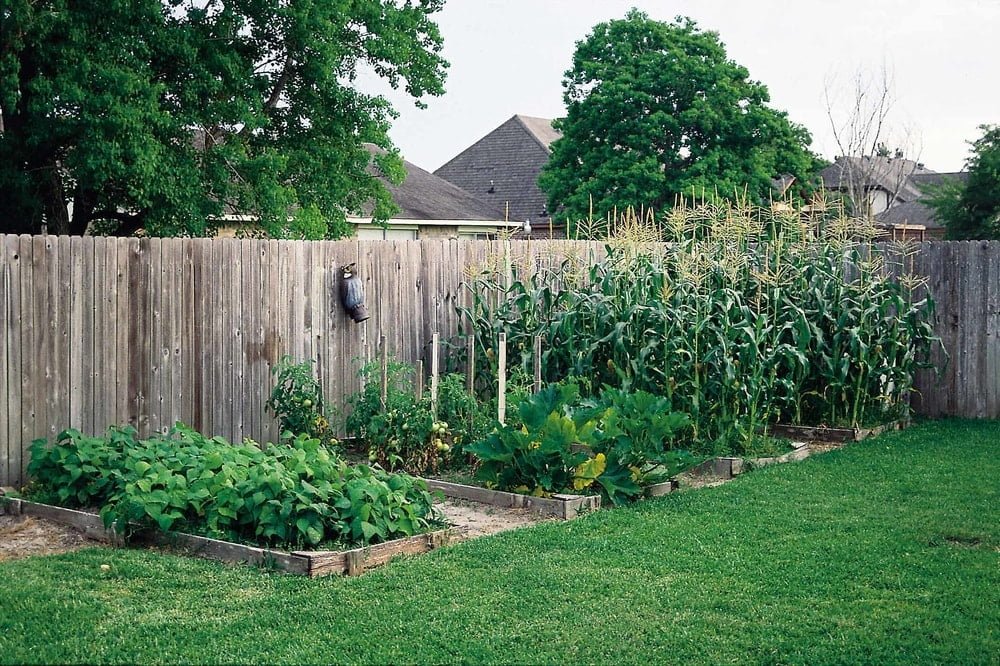A good fence helps define your property, offering protection and privacy. You might have great ideas for separating your yard from the neighbors. It could be personal, for safety, or simply decorative. However, almost every city or town has laws governing fencing around your property.
Laws and codes serve to protect us and provide mutual respect. You may also be obliged to follow further rules set out by a homeowners’ association (HOA). Still, they can sometimes be rather arbitrary. When it comes to issues about fencing, you’ll find both. It’s important to know the laws ahead of time to avoid fines and keep the peace in the neighborhood. It will also eliminate the cost of having to tear down your fence and rebuild it.
It’s true that every place will have its own particularities. Still, there are some general guidelines that apply in most places. Understanding these is the first step when planning a fence.
If you’re hiring a contractor, it’s their responsibility to follow all zoning laws. But when you’re doing it yourself, you take the responsibility on yourself.
This article is intended as general guidance. It is not legal advice and we are not lawyers. Consult your local zoning board before starting a fence or any other new construction on your property.
Being a Good Neighbor
Even before legal issues, basic human issues should play a role when you want to put up a barrier. A little communication can save huge headaches and misunderstandings later. If handled correctly, it can even save you money.
If there is no fence at all, talk to your neighbor about why you want to construct one. There are many understandable reasons for it. It may be because you have young children who will be playing outisde. Allowing your dogs a space to run around could be another reason. It could be for safety, privacy, or even for decoration.

Granted, there are times when the reason for putting up the fence might be the neighbor. In that case, at least try to remain civil. And it will be especially important to observe all codes about the fence if there’s already bad blood between you. These are the times when there’s the most risk of a complaint.
However, in other situations communication is key. Your neighbor may agree that a fence will be a great addition. In many places, the law requires that neighbors split the cost if you build right on the property line. The exact mechanics of this vary from state to state, so it’s important to check it out and talk through the plans. You don’t want to suddenly bill them without them knowing ahead of time!
Staying on the Right Side of the Law
Of course, even if you and your neighbor agree on the fence, there are still legal issues and homeowners’ associations to contend with.
These rules generally cover the height of the fence, where it has to be placed, and even how it looks. But they can even determine what constitutes a fence.
What’s a Fence, Anyway?
While you may think of a fence as a wood or metal construction, the law sometimes is broader than that. Anything that separates properties may be considered a fence. That includes bushes, shrubs, or other plants that form a continuous line. Be sure to check regulations before planting a hedge fence that will separate the property.
Height
In most places, a backyard fence can measure up to 6 feet high. In the front yard, it’s normally 3 ½ or 4 feet, depending on your jurisdiction.
Property Lines
You also have to be sure to respect the property line when constructing a fence. In most jurisdictions, the fence has to be on your side of the line. You’re not allowed to build even partially on another person’s property without their permission.
To be on the safe side, you could allow a setback which may be a foot or more. In effect, you’re giving up a bit of your property in order to build the fence. However, if you want to make sure it remains clear that it’s still your property outside the fence, be sure to work it out in writing with the neighbor. This will also make things go more smoothly if you or your neighbor ever decide to move.
In general, you aren’t required to have your property surveyed, and a survey can be expensive. However, it may still be a good idea in order to make sure you really are building on your own property.

If you want to build on the property line itself, the law may require that the two property owners split the cost if they will both “use” the fence. What does it mean to use it? That depends on local laws. Talk it over with the neighbor first and check out the laws before getting started!
Easements
Easements refer to sections of your property where you’re required to allow access to others. Sidewalks would be one example. More relevant to our topic, though, are public utilities.
Utilities such as gas, electric, and phone lines may run underground or above ground. You have to allow access to these to appropriate personnel.
If your fence crosses these lines or interferes with access for maintenance or repairs, they are allowed to remove that part of the fence.
Showing A Good Face
Most locales seek to guarantee that fences are built for valid reasons. That can have a broad meaning, but it does exclude mistreating the neighbor.
For example, you cannot construct an overly-high fence just because you don’t like the neighbor. Nor can you build one that’s ugly just to irritate them. These are called “spite fences” and aren’t allowed.
Some places also require that the side of your fence that faces your neighbor look at least as good as your side. You can’t have a great, finished look on your side but leave them staring at the ugly unfinished part.
Do You Have a Special Situation?
Sometimes there are unique situations that may affect certain homes in a neighborhood. For instance, there may be special ordinances when you own a corner lot. It’s in the public interest that cars approaching from either direction be able to see each other. In that case, there may be a regulation that calls for lower fences near the intersection.
Laws are generally made to deal with situations that already exist. That is, they’re always playing catch-up. So you may find yourself in a position where the law doesn’t address your situation.

For instance, when you bought your property, there may have been nothing but a forest or open fields behind you. It wasn’t all yours, but there was nothing else to worry about and the view was great. However, later development may not be so great to look at. The law might still say that fences can only be a few feet high, which was fine before. Now, though, circumstances have changed. In these cases, you may be able to ask for a variance from the local zoning board to create a taller fence than normally allowed.
In newer areas, you may find that a lot of issues haven’t yet been codified regarding many issues including fencing. If rules are later changed, you might be grandfathered in. That could depend on whether there is a safety factor in the changes, though.
Maintaining Your Fence
When it comes to maintaining your fence, the responsibility rests with the owner. If the fence is on the property line and both property owners paid for it, then most likely both will have to cover the expense of maintenance.
On the other hand, if you built the fence and it’s on your property, then you are responsible for keeping it in good shape.
What To Do in Case of Disputes
Even between the best of neighbors, conflicts and misunderstandings sometimes arise. In that case, it’s always best to try to resolve them between the two of you first. If they built the fence, it could just be that they weren’t aware of the code or rules of the HAO.
If direct communication doesn’t work, the correct route is to present the issue to the local zoning board. They will make a determination as to what, if any, changes need to be made.
Conclusion
Fences can add privacy, security, and even beauty to your property. However, they are carefully governed in most places. Be sure to check local zoning laws and the covenant of your HAO before planning. Work with your neighbors, too, to prevent misunderstandings and possibly even split the costs!









